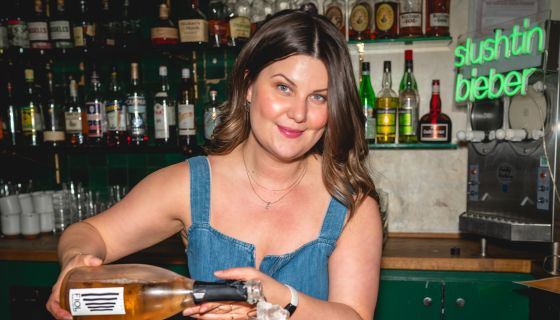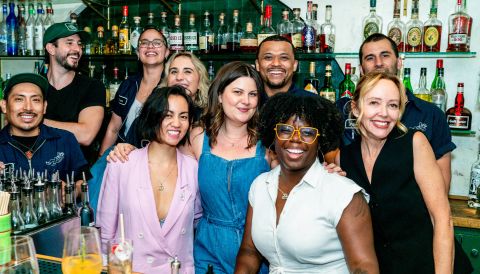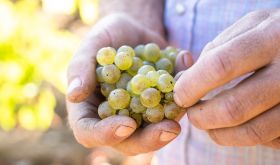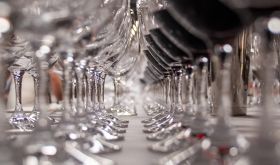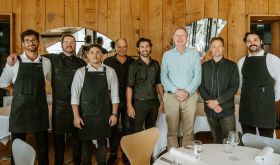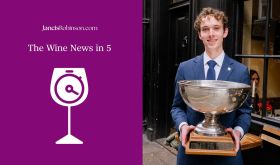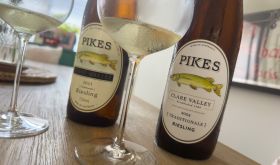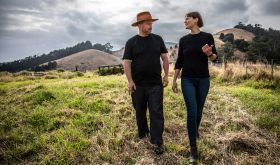Canada-born, UK-based Kaitlin Wilkes-Back started mixing drinks at The Savoy in 2012, just after she’d graduated from hotel school in British Columbia. In the short time since, she’s won numerous cocktail competitions, worked with top brands and began her own UK consultancy. But her most exciting move may be the one she doesn’t get paid for: the Ada Coleman Project, a database of the world’s most influential women and non-binary people in the drinks industry that she’s put together with her friend, beverage consultant Kristine Bocchino. Here Wilkes-Back talks about her inspiration for the project, and how it will help women in the hospitality industry.
How did you get from hotel school in British Columbia to The Savoy?
I did my graduate degree at Royal Roads University on the west coast of Canada in 2011, and thought, if I was going to do hospitality, I want to do it exceptionally. I want to go after five-star luxury. [I wanted to know] what would it be like to be part of a team that was absolutely entrenched in luxury hospitality.
You started as a waitress there; what drew you to bartending?
I think I was about three months in and Erik Lorincz, who was head bartender at the time at the American Bar, asked me one afternoon, ‘Kaitlin, what’s your favourite drink?’. I’m fresh out of Toronto, Canada, still have a super Canadian accent and I was like Erik, obviously, it’s so simple (I’m 20 years old): it’s a vodka soda, forever. He starts chuckling and is like, let me see, and he makes me one of his signature drinks which is a rum sour with port and a little bit of muscovado sugar. (That better be right or he’s going to kill me.) I took a sip and my brain exploded – what is this concoction? It’s so delicious! When I worked at Jack Astor’s it was Blue Lemonade and Long Island Iced Teas and Frozen whatevers so I didn’t understand drinks in the same way … the finesse, the quality, the hand-carved ice. That pivotal moment made me go this is cool, I want to pursue this.
How did you learn your trade?
I would spend some Sundays with the guys behind the bar learning how to throw Bloody Marys without it all ending up all over the floor. Asking more questions about drinks, spending more time with the bartenders so I could go to spirits training. The Savoy offered a lot of training, so I would sit down and do, say, a whisky training. Dean Callan, who is an industry legend, gave me my first-ever Scotch masterclass with Monkey Shoulder [a blended whisky]. It was [people like Callan], these icons of the drinks industry, showing me the way.
It took a while to sort of assimilate myself within the spirits industry – I was two years at The Savoy when my visa ended and I had to leave, and then I ended up moving to Sweden, which is a story for another time, but my time in Stockholm really let me assimilate myself as a bartender in the industry.
Ada Coleman was the first woman to be named head bartender of the Savoy, in 1903. How did she inspire your project?
When I first heard the story of Ada Coleman behind the American Bar, Gaby [Gabriela Moncada] was the only female head bartender we’d seen actively working in the bar. Then Natalie Lau started to work at the American Bar right before I left. They were the only two women I’d ever seen behind the bar at The Savoy. Ada Coleman – she was a pioneer. In her time, she was one of the most famous bartenders in the world, known for making these delicious strong drinks such as the Hanky Panky, which has become a centrepiece of the classic cocktail canon.
What drives me is thinking back to the 21-year-old me waitressing at the Savoy and the people that I had served maybe four or six times at the American Bar who still wouldn’t remember to say ‘Hi!’. Everyone wanted to talk to [a male bartender]. This happens a lot in the drinks industry. Twelve years ago, I would have loved to be closer to amazing women and non-binary people leading the way. You have to be able to see that path in order to be a part of it. I think, from a woman’s perspective, and probably for a lot of people who aren’t straight white men, it’s hard! When I was at The Berkeley as the assistant GM, nobody took me seriously unless I had a jacket on. There’s real misogyny in the industry. Yet 50% of the industry is women.
We [Wilkes-Back and co-founder Kristine Bocchino] wanted to find a solution for problems we were seeing which is a lack of women and non-binary people speaking, educating and doing guest-shifts. The Ada Coleman Project is a place where women and non-binary people can turn to and can educate and inspire this generation and beyond.
The site has a wealth of information on it, from mental health resources to material on education, leadership and career development, but it’s really the global database of women+ in the drinks industry that makes it stand out: it’s a terrific resource for event organisers and bars looking to diversify the people they work with.
It’s about building the voices for many, all together at the same time. I have a consultancy in the UK based on brand strategy and education. I can’t give you my confidence, but I can provide education and make you feel comfortable with who you are. I think knowledge is at the centre of how to build connections within the industry. Networking and mentorship are two of the main ways for women to advance their careers in the industry. At the Ada Coleman Project, you don’t have to be involved in the project to be in the fold.
How does someone become part of the database?
Right now, there is not an application process, but there are criteria to be met: people who are featured on the database have to have at least five years in the industry and [show] true leadership in one or more of the 10 criteria. If you sign up to the website, you’ll see leadership and innovation, industry impact, entrepreneurship, creativity, social responsibility, influence on guest experience, recognition and rewards etc. We don’t know everyone on the list; that would be elitist and weird and we’d be part of the problem. Instead, we worked with our networks to create the first 57 people in the database who will help us nominate the next 100. We’re not experts on say, India. We’d like to work with our current listee from India to help us understand the market more. It’s all about expanding as much possible and women supporting women/non-binary supporting non-binary.
I hope one day there’s thousands. Just hope that it’s a useable tool, which is our one worry. We are open and ready for fundraising.
Miley Kendrick has found slinging drinks to be a natural fit for a musician and former frontwoman. Since she started bartending at age 18, she's won multiple UK cocktail competitions and competed worldwide. When she's not training staff at the Tiki Hideaway in Leeds, she's most likely honing her writing chops.
To learn more about the Ada Coleman Project, visit their website.

